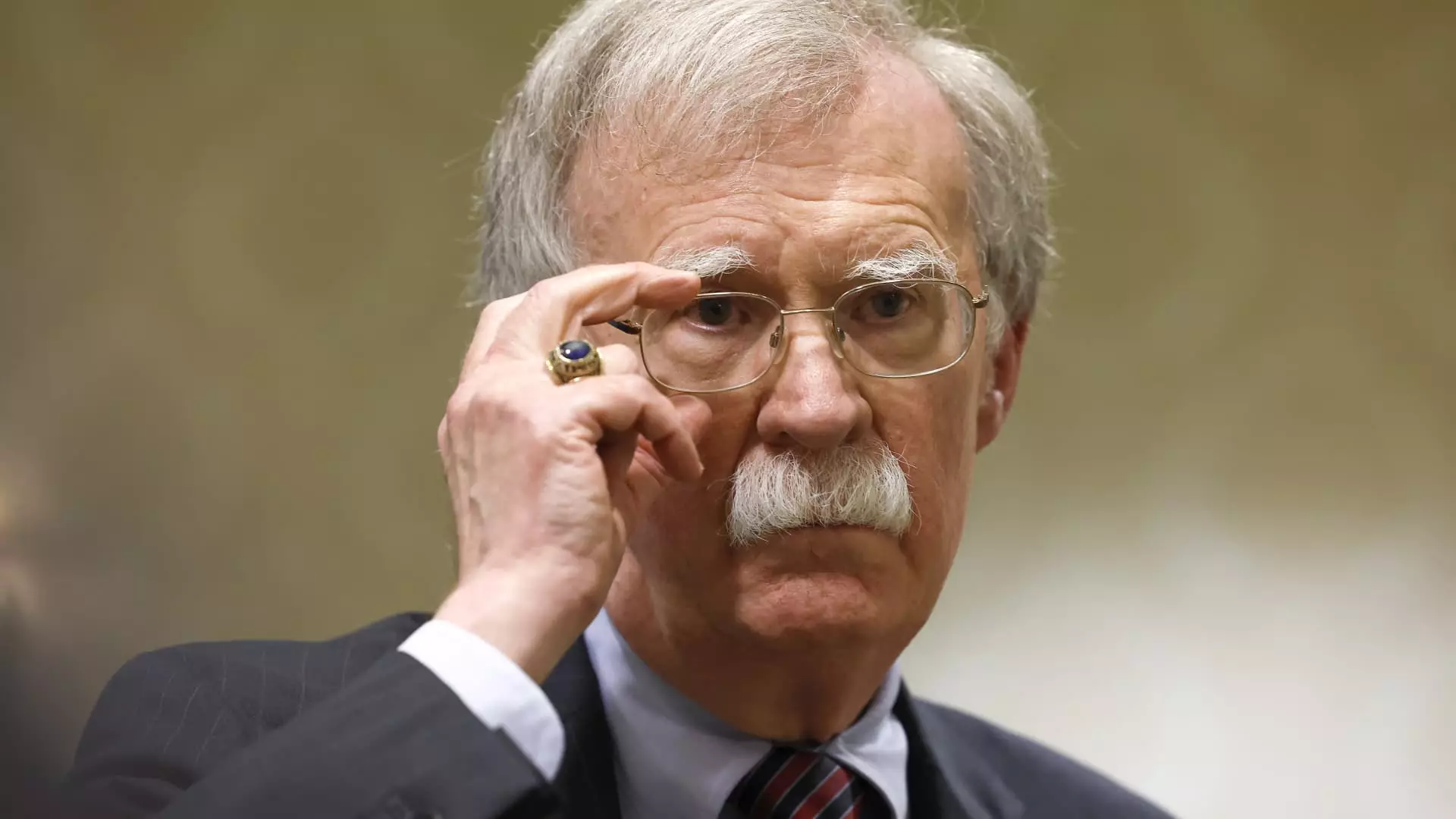It’s no secret that the United States has long stood as a pillar of global leadership. Yet, under Donald Trump’s administration, this leadership has often appeared more like a reckless gamble than a strategic endeavor. The recent imposition of sweeping tariffs, intended to address long-standing trade inequities primarily with China, has set off alarm bells not only among rival nations but also amongst America’s closest allies. Former national security advisor John Bolton offers a critical perspective on this unfolding crisis, arguing that Trump’s approach is far from wise; instead, it’s dangerously counterproductive. By framing his trade wars as a necessary response to adversaries while painting allies with the same brush, Trump has risked what Bolton deems a “strategic blunder”—a tactic that could cost the U.S. dearly in the long run.
Bolton’s criticism serves as a reminder that economic warfare isn’t just about tariffs; it’s about relationships. The President’s justification of “reciprocal” tariffs lacks the nuanced understanding required to navigate international economics. Slapping tariffs on allies who have cooperatively participated in both trade and defense agreements, instead of forming a united front with them against common adversaries like China, shows a troubling disregard for diplomacy and the principles that have underpinned U.S. foreign policy since World War II.
The Ripple Effect of Tariff Warfare
Trump’s actions have sent global markets into a frenzy, showcasing just how intertwined the world’s economies have become. Declaring “liberation day” with a sweeping tariff policy only days before a turbulent market reaction exposed the chaos that ensued—trillions worth of wealth obliterated, and skyrocketing treasury yields are consequences that the administration did not anticipate. The chaotic imposition of a blanket 10% tariff on almost all imports, along with even higher levies aimed at specific nations, reflects an unyielding approach that feels both erratic and ill-conceived.
What’s especially alarming is the retaliatory tactics employed by other nations. China, facing tariffs that have soared to 145%, has been resilient rather than submissive. The tit-for-tat strategies have unveiled a painful truth: both nations are engaged in a zero-sum game that often leaves both sides worse off. By escalating tensions rather than fostering dialogue, Trump has not only hardened China’s resolve but also put the U.S. in an untenable position. Renowned figures such as Bolton argue that economic collaboration with allies could mitigate the long-standing issues posed by China’s unfair trade practices. If we had approached this with unity instead of a divisive tariff war, the outcomes could have been markedly different.
The Pervasive Threat of Isolationism
Beyond tariff battles, the political ramifications are equally severe. Trump’s apparent alienation of traditional allies threatens to create a vacuum that other global powers, notably China itself, are eager to exploit. The Chinese government is making strategic moves in Southeast Asia, potentially capitalizing on U.S. disarray to forge new alliances. Bolton highlights the irony—China, often viewed as the villain in this narrative, is now emerging as an alternative partner for nations disillusioned by American policies.
Exemplifying this notion, leaders across the globe openly criticize Trump’s tactics, depicting them as a “hurricane” that threatens to fragment longstanding relationships built on trust. The stakes are high; while the President may believe he is enforcing American strength, he is inadvertently undermining the very credibility that the U.S. has fought to uphold on the world stage.
A Call for Rational Diplomacy
As we reflect on the current state of international relations under Trump’s administration, it becomes clear that a more rational approach rooted in diplomacy is desperately needed. Holding nations accountable for their actions is vital, yet it should not come at the expense of alliances forged over decades. Bolton correctly points out the necessity of joining forces with countries that share similar grievances against China, suggesting that expanding our circle of allies rather than narrowing it could yield far greater results. The elaborate manipulation of the World Trade Organization and exploitative trade practices should not be tackled in isolation; they demand a coalition of nations working hand in hand to promote fairness and integrity.
The future of American leadership hinges upon recognizing the crucial balance between asserting our economic power and nurturing strategic partnerships. Instead of tearing down the relationships painstakingly built since World War II, it’s time for the U.S. to reclaim a path of cooperation. The question remains—will the current administration pivot toward a more collaborative approach, or continue to drive nations further apart? The answer may determine the trajectory of both U.S. foreign policy and international stability for years to come.

Leave a Reply